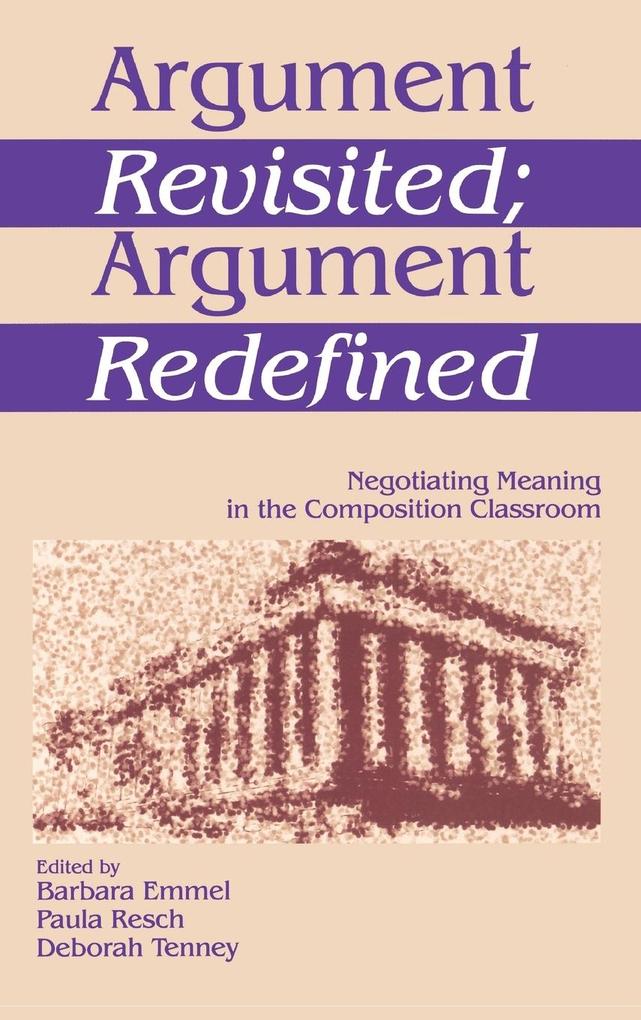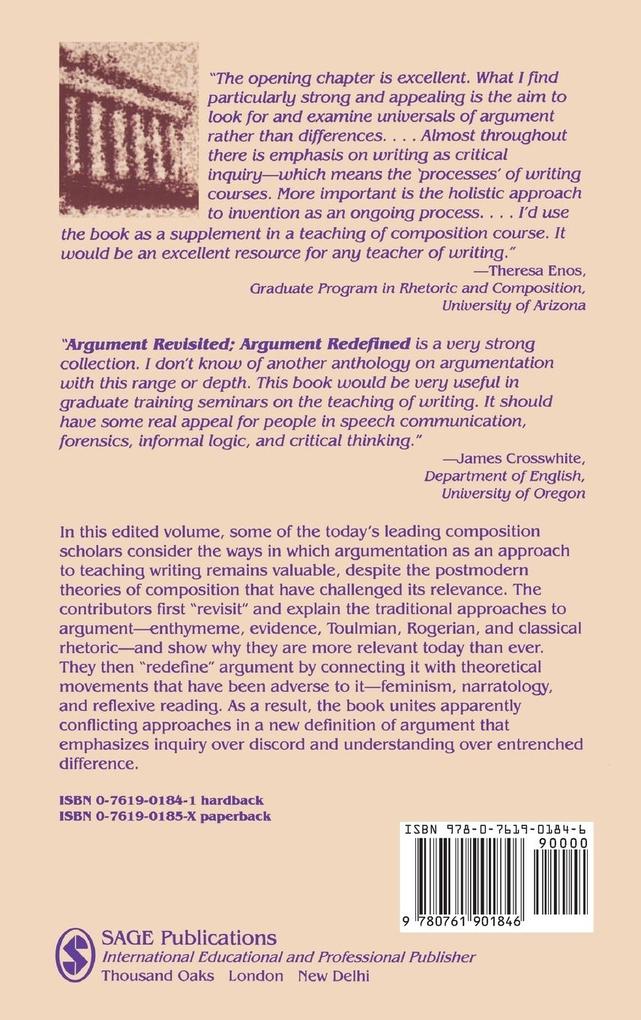
Zustellung: Di, 17.06. - Fr, 20.06.
Versand in 1-2 Wochen
VersandkostenfreiBestellen & in Filiale abholen:
In this volume leading composition scholars consider the ways in which argumentation as an approach to teaching writing remains valuable - in spite of the challenge presented by postmodern theories.
The book first explains the traditional approaches to argument - the enthymeme, evidence, Toulmian, Rogerian and classical rhetoric - and illustrates why they are of particular relevance today. The contributors then `redefine' argument by connecting it with theoretical movements that have been adverse to it - feminism, narratology and reflexive reading. As a result, the book unites apparently conflicting approaches into a new definition of argument that emphasizes inquiry over discord and understanding over entrenched difference
The book first explains the traditional approaches to argument - the enthymeme, evidence, Toulmian, Rogerian and classical rhetoric - and illustrates why they are of particular relevance today. The contributors then `redefine' argument by connecting it with theoretical movements that have been adverse to it - feminism, narratology and reflexive reading. As a result, the book unites apparently conflicting approaches into a new definition of argument that emphasizes inquiry over discord and understanding over entrenched difference
Inhaltsverzeichnis
Introduction - Barbara Emmel, Paula Resch, and Deborah Tenney
ARGUMENT REVISITED
The Reasoned Thesis - John T Gage
The E-Word and Argumentative Writing as a Process of Inquiry
Evidence as a Creative Act - Barbara Emmel
An Epistemology of Argumentative Inquiry
The Toulmin Model of Argument and the Teaching of Composition - Richard Fulkerson
Rogerian Rhetoric - Doug Brent
Ethical Growth through Alternative Forms of Argumentation
Classical Rhetoric - Jeanne Fahnestock and Marie Secor
The Art of Argumentation
ARGUMENT REDEFINED
Positioning Oneself - Pamela J Annas and Deborah Tenney
A Feminist Approach to Argument
Principles for Propagation - Judith Summerfield
On Narrative and Argument
The `Argument of Reading in the Teaching of Composition - Mariolina Salvatori
The Argument of Reading - David Bartholomae
ARGUMENT REVISITED
The Reasoned Thesis - John T Gage
The E-Word and Argumentative Writing as a Process of Inquiry
Evidence as a Creative Act - Barbara Emmel
An Epistemology of Argumentative Inquiry
The Toulmin Model of Argument and the Teaching of Composition - Richard Fulkerson
Rogerian Rhetoric - Doug Brent
Ethical Growth through Alternative Forms of Argumentation
Classical Rhetoric - Jeanne Fahnestock and Marie Secor
The Art of Argumentation
ARGUMENT REDEFINED
Positioning Oneself - Pamela J Annas and Deborah Tenney
A Feminist Approach to Argument
Principles for Propagation - Judith Summerfield
On Narrative and Argument
The `Argument of Reading in the Teaching of Composition - Mariolina Salvatori
The Argument of Reading - David Bartholomae
Produktdetails
Erscheinungsdatum
24. Juni 1996
Sprache
englisch
Seitenanzahl
256
Autor/Autorin
Barbara Emmel, Paula Resch, Deborah Tenney
Verlag/Hersteller
Produktart
gebunden
Gewicht
526 g
Größe (L/B/H)
235/157/18 mm
ISBN
9780761901846
Entdecken Sie mehr
Bewertungen
0 Bewertungen
Es wurden noch keine Bewertungen abgegeben. Schreiben Sie die erste Bewertung zu "Argument Revisited; Argument Redefined" und helfen Sie damit anderen bei der Kaufentscheidung.










